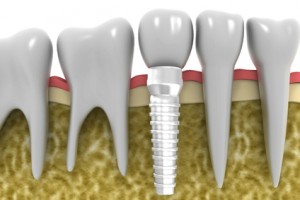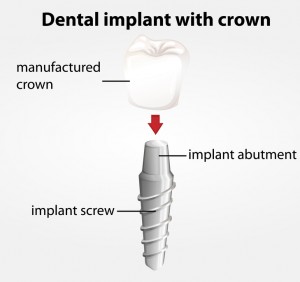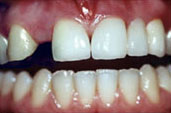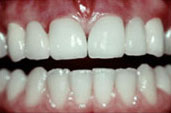 The excellent dental restorations we offer are nothing without support. While this commonly means drawing on the strength of remaining teeth (as with crowns or bridges), sometimes patients have lost too many teeth for this to be a viable solution. Dalton dental implants create new tooth roots for restorations to be paired with, protecting the area and providing incredible stability. Implants are possible for patients with adequate bone density, who are in strong oral and periodontal health.
The excellent dental restorations we offer are nothing without support. While this commonly means drawing on the strength of remaining teeth (as with crowns or bridges), sometimes patients have lost too many teeth for this to be a viable solution. Dalton dental implants create new tooth roots for restorations to be paired with, protecting the area and providing incredible stability. Implants are possible for patients with adequate bone density, who are in strong oral and periodontal health.
Can I Receive Dental Implants?

Implants are titanium screws that are placed directly in your jawbone. Once present in your jaw, the implants will slowly begin to fuse with your natural tissues. After an adequate period, the implants will be attached to your jaw, a true part of your dental structures. Because implants must fuse with the bone, the area needs to have sufficient bone mass for the implants to connect. This means that you may need a bone graft (especially if you have been missing teeth for an extended period). Patients in poor oral or periodontal health will also need dental care and healing before they can receive implants. No matter your case, we will work to help you reach that healthy place.
A Dental Implant’s Role in Your Restoration
 Implants emerge from the gum line to connect to abutments, which are subsequently attached to dental restorations. Implants will support every type of dental restoration:
Implants emerge from the gum line to connect to abutments, which are subsequently attached to dental restorations. Implants will support every type of dental restoration:
- Crowns
- Bridges
- Denture
- Partials
…and all with unwavering security.
Health Benefits of Dental Implants
Implants allow you to replace entire missing teeth, and to preserve your remaining teeth along the way. Implants’ health benefits include
- 1. Stronger periodontal health – Spaces left along the gum line foster bacteria growth and gum disease. Filling those gaps with healthy structures is better for your teeth and gums.
- 2. Prevention of bone loss – With implants attached to the jaw bones, those structures will not resorb and dissolve. You’ll enjoy retained bone mass and facial structure.
- 3. Reduced dependence on natural teeth – Bridges and crowns need the support of natural teeth to survive, which can be draining on weakened neighboring teeth. Implants replace teeth on an individual basis, creating entire, independent tooth structures.

 Implants could completely change your tooth replacements and enhance your tooth function. In order to begin discussing the process, contact our office today.
Implants could completely change your tooth replacements and enhance your tooth function. In order to begin discussing the process, contact our office today.





